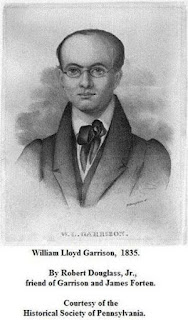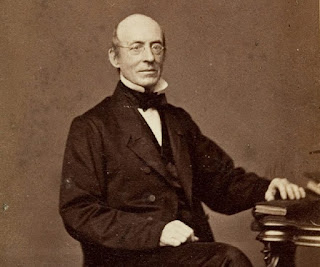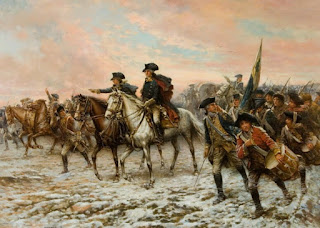EOTO: William Lloyd Garrison - Week 6
Who is William Lloyd Garrison? A short video.
William Lloyd Garrison. A renown political author, women suffragist, and racial justice warrior. Garrison was one of the most prominent figures in the slavery abolitionist movement. He was well-known for his writings and philosophy that change must come from within, and not merely just be written or enacted in law. His plethora of positions, confrontations, and encounters equipped him with the ability to fight for racial and gender equality through means of writing and journalism.
Growing up, him and his siblings struggled to stay afloat after their
drunken father abandoned them after the shipping port, he was employed at closed
permanently. Garrison eventually went from selling molasses candy on the
streets to scrape by for years with his siblings to landing a writing and
editing apprenticeship position at the Newburyport Herald.
This job enabled him with resources and experiences to purchase and run his own
press, the Newbury Port Essex Courant, where soon after
he released the Newburyport Free Press, a way of pressing the
old Federalist ideals back into the public. The Free Press failed
only 6 months after, but if had continued any longer, Garrison would never have
moved to Boston, Massachusetts, where he was recruited to edit and print the
reform newspaper, the National Philanthropist.
A young portrait of Garrison, from Newburyport News
After meeting Benjamin Lundy, the abolitionist editor of the Genius of Emancipation, he was made aware of how evident and how serious the issue of slavery was and was welcomed aboard to edit the paper in Vermont. This was the beginning of Garrison's abolitionism. A few years after, he published the Liberator, which established his reputation. He had some supporters, but sadly quite a lot more that disagreed violently with his views. There were many time Garrison was threatened and almost lost his life due to the cause. One time in Boston, he was beaten so badly and dragged through the streets; he was left to die.
This did not stop him, in fact, it seems as if this fueled him. He went on
to further organize the anti-slavery movement by forming the American
Anti-Slavery Society. He fought against the Union during the Civil War era and
believed it should be eradicated. He opposed the annexation of Texas and the Mexican
American War. He fought the Kansas-Nebraska Act in 1854 and played a role in
the repeal of the Missouri Compromise. The Dredd-Scott decision of 1857
multiplied the tensions between those for and those against slavery because it
stated that Congress had no power to ban slavery in federal territories. His
most prominent and impactful opposition was of the U.S. Constitution itself; he
took it upon himself to publicly burn copies in a form or protest and revealed
that African Americans were not protected by the Constitution, and they could
never become U.S. citizens.
Garrison continued the Liberator for decades to come, and
eventually saw the country reap the fruits of his labor. The 13th amendment was
enacted, in both the North and the South, permanently banning slavery within
the United States, forever. His writings are still studied by journalists,
historians, and those who seek justice to see if any of the hundreds of
thousands of words he wrote and published can offer solutions to the racial,
gender, and governmental issues that are still experienced today.



Comments
Post a Comment